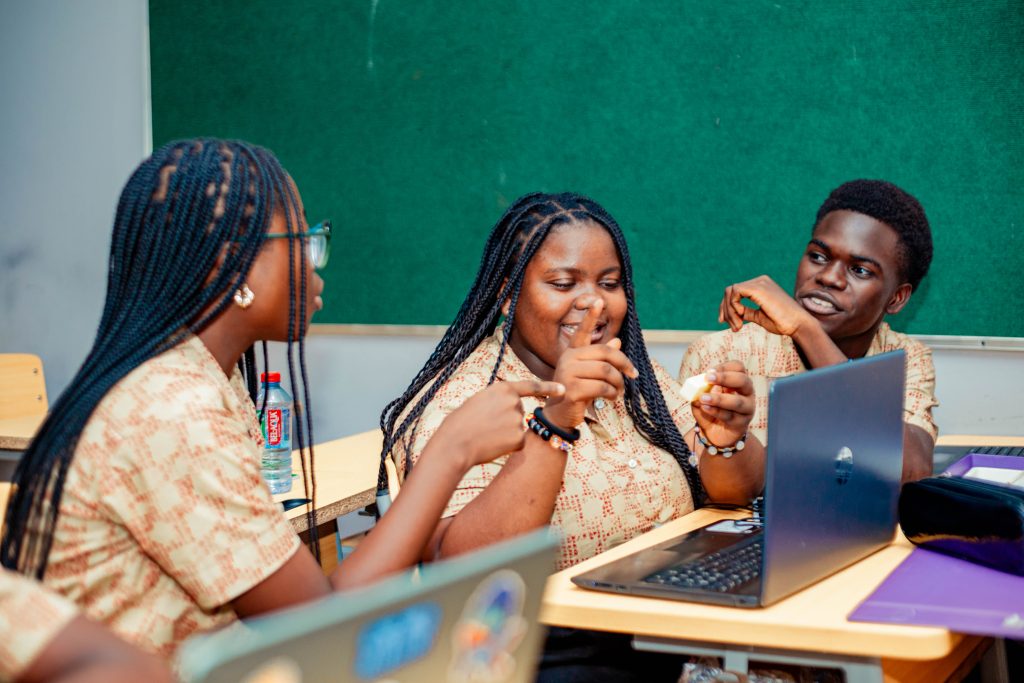Key Points at a Glance
Successful IB and Cambridge students rely on consistency, planning, and self-awareness to maintain top performance.
Study habits like active recall, time blocking, and regular reflection enhance long-term retention and exam readiness.
Balancing academic work with well-being improves focus, motivation, and resilience under pressure.
Schools like Morgan International Community School (MICS) cultivate strong academic habits through structured guidance and holistic learning.
The International Baccalaureate (IB) and Cambridge curricula are renowned for their academic rigor, global outlook, and emphasis on independent thinking. But with such demanding expectations, students often ask: What separates high-performing learners from the rest?
The answer lies not just in intelligence, but in developing the right study habits. Whether you’re aiming for top marks in the IB Diploma Programme or preparing for IGCSEs, cultivating effective learning routines is essential.
Here’s how IB and Cambridge students can study smarter — and reach their full potential.
1. Build a Study Schedule You Can Stick To
High-performing students don’t leave studying to chance. They work from a structured timetable, mapping out daily, weekly, and termly goals.
Tips:
Use a planner or digital calendar to block out subjects each day.
Prioritize challenging subjects during times when your brain is most alert.
Include breaks and revision sessions to avoid burnout.
This approach fosters time management and responsibility from an early age.
2. Embrace Active Learning Techniques
Top learners know that passive reading isn’t enough. They use active recall, spaced repetition, and self-testing to reinforce what they’ve studied.
Proven Techniques:
Active recall: After reading a chapter, close the book and write down or say what you remember.
Spaced repetition: Review material at increasing intervals to boost long-term memory.
Flashcards & quizzes: Use tools like Quizlet or Anki to test yourself regularly.
These strategies are especially useful for subjects like Biology, History, or Literature — where detailed knowledge and connections matter.
3. Set SMART Goals for Each Study Session
Rather than vague plans like “study Science,” aim for Specific, Measurable, Achievable, Relevant, and Time-bound (SMART) goals. For example:
“Review and summarize Chapter 3 of Chemistry in 30 minutes.”
“Complete one past paper question on algebra and check against the mark scheme.”
This habit keeps learners focused and prevents procrastination.
4. Minimize Distractions and Maximize Focus
Even the brightest students struggle in noisy, tech-heavy environments. High performers create study spaces that support deep concentration.
Try This:
Put your phone in another room or use “Focus Mode.”
Work in short, focused sprints (e.g., Pomodoro Technique: 25 minutes of work, 5-minute break).
Listen to instrumental or ambient music if silence feels too harsh.
At MICS, students have access to quiet, well-resourced learning spaces that support sustained concentration and academic focus.

5. Practice With Purpose — Not Just Repetition
Repetition alone doesn’t guarantee improvement. Deliberate practice, where students reflect on what went wrong and how to improve, leads to mastery.
For Example:
After solving a math problem, review why a mistake occurred.
In essay writing, revise your structure or argument based on teacher feedback.
By incorporating reflective practices into learning, students become more analytical — a core trait of successful IB and Cambridge scholars.
6. Balance Academics With Well-being
It’s a mistake to sacrifice sleep, exercise, or social interaction for more study hours. Top students understand that physical and emotional wellness fuel academic success.
Wellness Tips:
Sleep at least 7–8 hours per night — the brain consolidates learning during rest.
Include physical activity (even a walk) to boost focus and reduce stress.
Schedule time for hobbies, friends, and mental rest.
MICS promotes well-being through extracurricular activities, sports, and pastoral care — ensuring that students are not only high achievers but also emotionally balanced individuals.
7. Use Feedback to Grow, Not to Judge
One trait that distinguishes high-performing students is their attitude toward feedback. Instead of taking corrections personally, they view them as roadmaps for improvement.
What to Do:
Review marked assignments carefully. What patterns do you notice?
Ask teachers clarifying questions to understand feedback.
Set micro-goals based on feedback (e.g., “Use more transition words in essays”).
MICS teachers provide detailed, constructive feedback — encouraging students to grow through reflection rather than fear of failure.
8. Collaborate and Learn From Others
IB and Cambridge programmes emphasize collaboration, inquiry, and global perspectives. Studying with peers fosters deeper understanding and exposes students to alternative viewpoints.
Suggestions:
Form study groups to review key topics.
Teach a concept to a friend — if you can explain it clearly, you truly understand it.
Compare notes or essay structures to improve your own approach.
In the spirit of international-mindedness, MICS encourages students to collaborate respectfully and think beyond themselves — a trait that serves them well in university and life.
Final Thoughts
There’s no single formula for academic success, but the study habits of high-performing IB and Cambridge students share consistent themes: planning, active engagement, self-awareness, and balance.
By applying these strategies, students can not only boost their grades but also develop the mindset of lifelong learners — something deeply embedded in the mission of Morgan International Community School (MICS).
With its blend of academic excellence and student-centered support, MICS continues to nurture individuals who are not only exam-ready but also world-ready.
